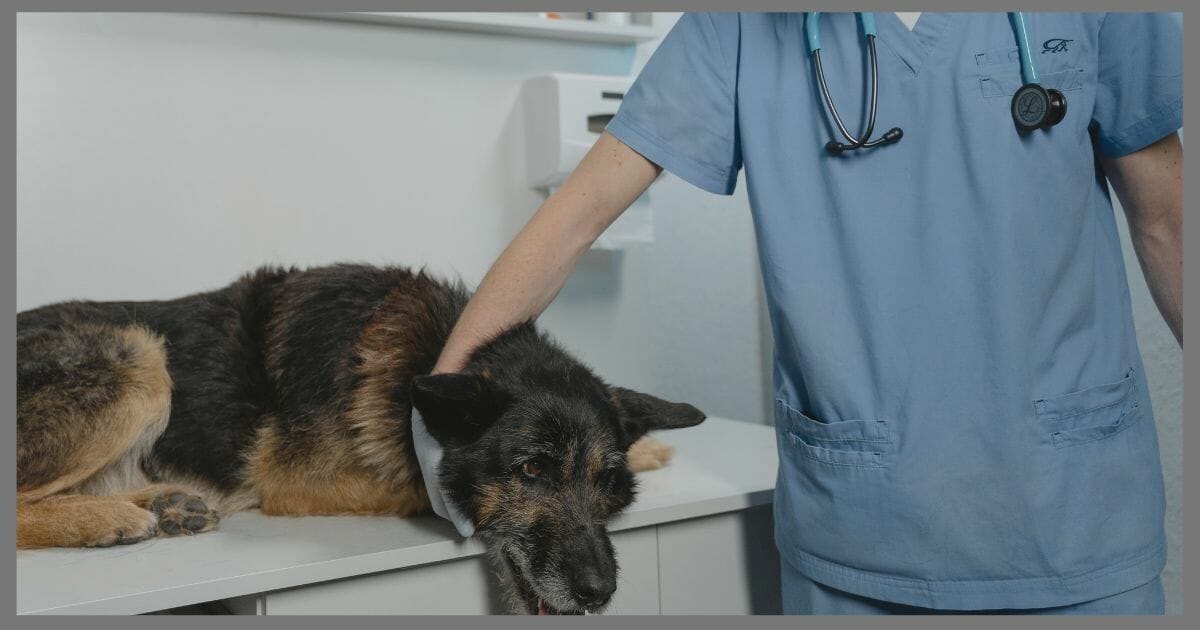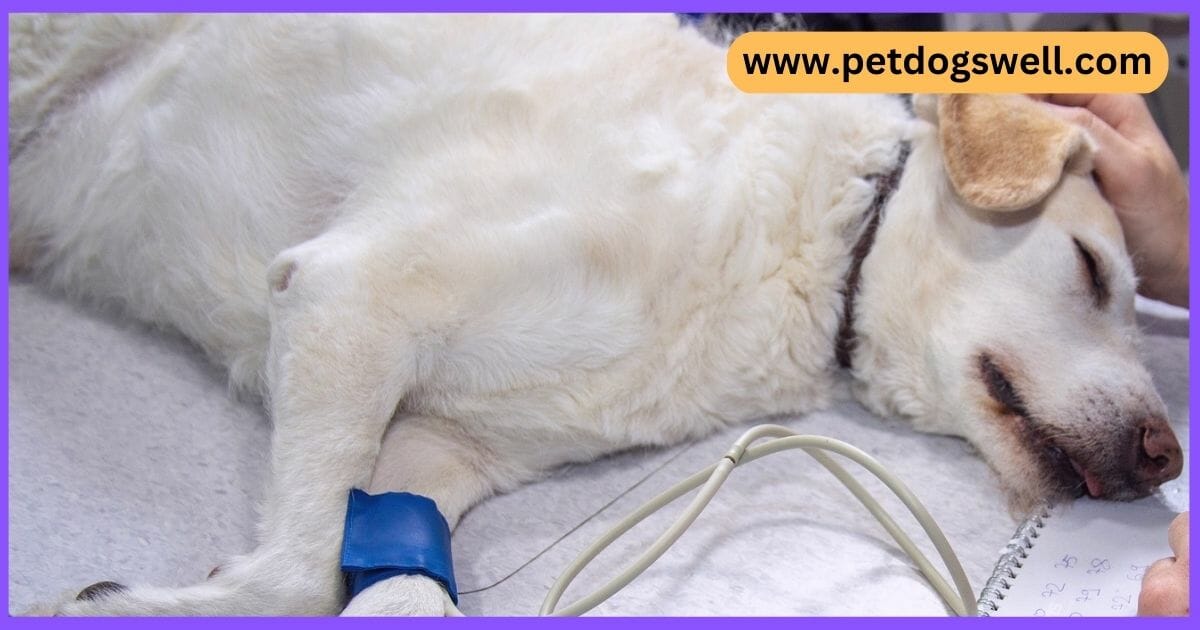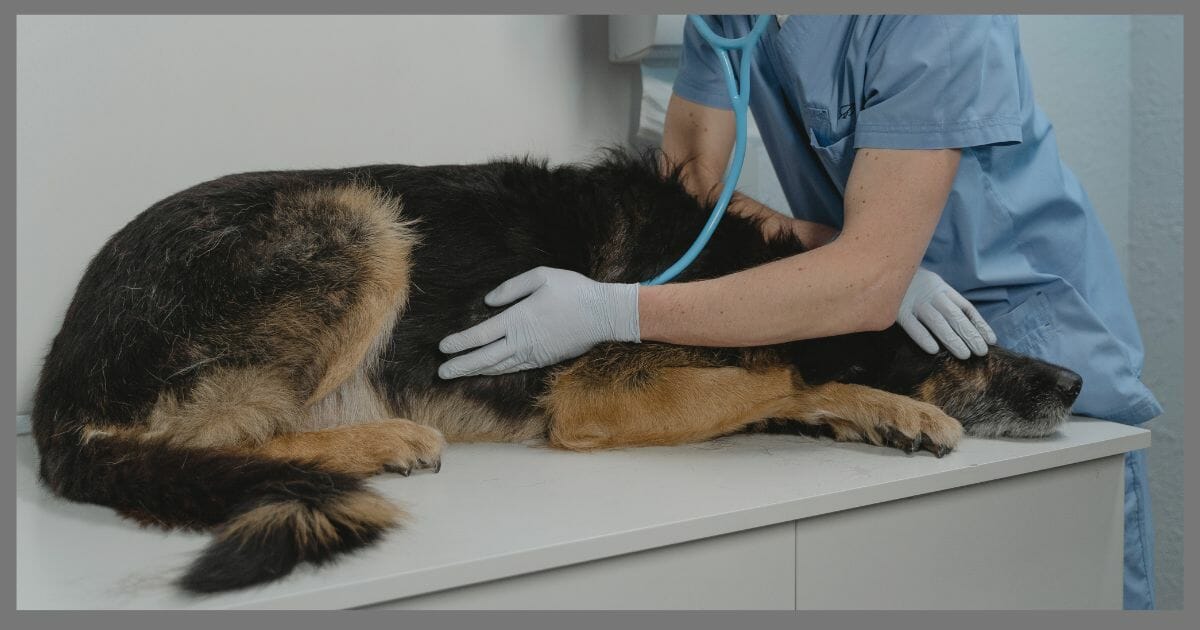Many families love to keep dogs in their homes, and it’s essential to understand and be aware of the most common dog health problems and issues that can affect your dog. No matter you are a new dog owner or an experienced one for many years, be careful about your dog’s health.

When you take enough care of your dog, then it saves your pup from many health disorders. But still, there are some health problems caused by many factors like digestive disorders and parasitic and bacterial effects that may occur and your dog may become sick.
What are the Most Common Dog Health Problems?
There are three most commonly occurring dog health problems like obesity, gum disease, and ear infections. These three health problems depend on different factors like dog breed, sex, age, diet, and exercise.
Dog owners must be careful about cleaning their dog’s teeth and ears so that dogs be safe from gum disease, and daily exercise to reduce the risk of obesity problems in dogs.
What are Common Dog Health Problems?
When we talk about dogs’ health problems then we think about big issues and diseases in dogs like cancer and epilepsy. But still, there are many other common dog health problems like skin allergies, arthritis, dental issues, diarrhea, vomiting, and digestive upset.
There are various factors that can cause common health problems in the dogs like genetics, diet, and environment. So, feed your dog a well-balanced and pure healthy diet and keep it in a clean environment.
When your dog suffers from any of these health disorders then regular check-ups with a veterinarian and as well as proper diet and exercise can help to recover. Additionally, ensuring regular grooming of the dog and preventative care such as parasite control and vaccinations can help keep your dog healthy.
Common Dog Health Problems
Dogs are lovely friends and most people keep dogs in their homes. Therefore, the healthy life of these furry friends is dependent on the owners. There are the following explained common and most common dog health problems.
1. Obesity as the Most Common Dog Health Problems
Obesity is a very common health problem in humans and dogs also. Obesity occurs when we feed an unbalanced diet to our dog and don’t provide enough walking and exercise to our dog.

Several other diseases like diabetes, heart disease, and orthopedic problems occur in dogs due to obesity. To get rid of obesity in dogs you have to provide enough amount of exercise to your dog and a well-balanced diet too.
There are the following signs of obesity in dogs;
- Feeling much difficulty in walking.
- Most dogs feel tired and sleepy.
- Breathing difficulty (dogs get out of breath).
- Dogs are not interested in exercise.
- Their waist is not clearly visible.
- Thick and fatty neck.
Treattment of obesity in dogs includes;
- Provide a healthy and well-balanced diet to your dog.
- Provide daily exercise and walk to your dog for a healthy life.
2. Gum Disease as the Most Common Dog Health Problem
Gum disease, which is also known as periodontal disease, is a common health problem in dogs. It is caused by the accumulation of plaque and tartar on the teeth, which leads to inflammation and infection in dogs.
When dogs eat food, then saliva, bacteria, and food particles mix and make a film on teeth called “plaque“. With the passage of time plaque adds up and becomes a harder form called “tartar“. Both tartar and plaque are rich in bacteria and cause gum disease. These produce an acid that eats your dog’s teeth and finally leads to cavities.
There are the following symptoms of gum disease in dogs;
- Bad breath or smell in dog’s breath.
- Red or swollen gums.
- Bleeding gums.
- Losing interest in food.
- Difficulty while eating.
When your dog is suffering from gum disease then must take the preventive measures mentioned below;
- Regular cleaning of the teeth with brushes.
- Feed antibiotics to your dog according to your veterinarian.
- Provide dental chews to your dog like greenies, bright bites, and dog biscuits.
3. Ear Infections as the Most Common Dog Health Problem
Ear infections are the most common health problems in dogs, particularly those with floppy ears and those that have a lot of hair around their ears. Because environmental waste and dust particles may accumulate in long and narrow ear canals and cause ear infections.

Additionally, there is a warm wet environment in the long ear canals of dogs that is suitable for bacterial and yeast growth. Bacteria and yeast also cause ear infections in dogs. This ear infection in dogs can cause inflammation and discomfort in the ear.
There are the following symptoms of ear infections in dogs;
- When dogs are shaking their head.
- Itching or dogs scratch or rub their ear.
- Discharge of unpleasant material from dog’s ears.
- Redness around the ear of dogs.
- Odor in the ears.
- Yelping or wincing while touching dog’s ear.
- Swelling the ear canal of dogs.
NOTE: When an ear infection has severe conditions, the dog may also experience hearing loss or balance issues.
Treatment of ear infections in dogs;
- Take your dog to the veterinarian when suffering from an ear infection.
- Preventive measures like regular ear cleaning and using ear drops.
- Administering antibiotics or anti-inflammatory medications for your dog.
- When chronic infections occur then surgery may be applied.
4. Skin Issues as Common Dog Health Problems
Skin problems are very common dog health problems, and dogs try itching and scratching their skin. Many factors are responsible for skin problems like fleas and ticks, skin allergies, skin infections, food allergies, lupus, yeast infections, ringworms, hookworms, parasites, and more.
There are the following symptoms of skin problems in dogs;
- If dog skin appears red or discoloration on the skin.
- If dog skin becomes flaky, scaly, or simply abnormal.
- If dog skin seems to be inflamed.
- If a dog loses patches of hair.
- Rashes on dog skin.
- Swelling or lumps on dog skin.
There are the following treatments for dog skin problems;
- Oatmeal baths – Take ground oatmeal and give your dog daily baths with oatmeal plus water.
- Baths with medicated shampoos (specially made for dog skin issues).
- Feed your dog yogurt without fat.
- Healthy nutritional supplements and fatty acids.
- Give antibiotics, and anti-inflammatory medications according to your veterinarian doctor.
- Massage Vitamin E oil on dog skin.
- Coconut oil massage on dog skin.
5. Poisoning / Toxicity as Common Health Problems in Dogs
Dogs are very curious pet animals and they are totally food dependent. And poisoning or toxicity in dogs can occur from ingesting a variety of substances, including food items, plants, medications, and chemical items.

But symptoms of poisoning can be different depending on the type of poison and the amount consumed.
There are the following common symptoms of poisoning in dogs;
- Vomiting in dogs.
- Diarrhea in dogs.
- Loss of appetite.
- Confusion in your furry friend.
- Convulsions sometimes.
- Coma also may occur.
If you suspect that your dog is suffering from poisoning or toxicity, then it is important to find immediate veterinary care. In the meantime, also try to identify the poison source and bring its sample with you to the veterinary care.
Treatment of poisoning or toxicity in dogs includes;
- Inducing vomiting – at home with hydrogen peroxide unopened and non-expired bottle.
- Administering activated charcoal to absorb the poison from stomach.
- Administering some intravenous fluids (according to your vet) to flush the poison out of the body.
- Providing supportive care.
- In severe conditions, bring your dog to nearer veterinary hospital for proper treatment.
6. Diarrhoea as Common Health Problem in Dogs
Diarrhea (loose or watery stools) is a common health problem in dogs, one or two episodes of diarrhea are not much risky. But ongoing diarrhea may cause dehydration in dogs. There are many reasons that cause diarrhea in dogs like changes in diet, stress, and parasitic infections.
When a dog suffers from diarrhea, it may have some other symptoms such as vomiting, loss of appetite, and abdominal pain.
Mostly, diarrhea in dogs is not serious and can be easily treated at home;
- Feed a bland diet like boiled chicken, some canned plain pumpkin, white rice, and low-fat hamburger for 24 to 48 hours.
- Cooked pasta is also the best option to recover from diarrhea.
- Metronidazole (Flagyl) common antibiotic according to your vet’s suggestions.
- Give probiotics to your dog according to your vet.
On the other hand, if the diarrhea is an acute type and may be caused due to serious health issues like cancer or any inflammatory bowel disease, then don’t waste time at home, immediately take your dog to the hospital for high-level treatment of your dog.
7. Vomiting as Common Health Problem in Dogs
Vomiting in dogs is one of the common dog health problems that can have several effects on their health. Vomiting causes dehydration, nutritional deficiencies, damaging gastrointestinal tract, and deficiencies of electrolytes like potassium, sodium, and chloride in dog’s body.
Vomiting in dogs can be caused by multiple factors such as;
- Ingesting or eating something toxic.
- Eating more food than usual.
- Eating more grass.
- It also can be caused by bacterial infections or parasites such as worms.
- Due to some health conditions such as pancreatitis, kidney diseases, and diarrhea.
In normal vomiting cases, serve your dog a small amount of water and ice chips. Also, stop food for 12 to 24 hours. After this, gradually feed your dog small amounts of bland diets like boiled chicken and rice.
Remember, you don’t need to rush to the hospital every time your dog is vomiting. If your dog is vomiting frequently or for an extended period of time, then must consult with a veterinarian for appropriate treatment.
8. Urinary Tract Infections (UTI) as Common Dog Disease
A urinary tract infection (UTI) is one of the common dog health problems, that occurs due to bacterial infections on any part of a dog’s urinary system such as the kidneys, bladder, ureters, and urethra. Female dogs are more affected by UTIs because they have short urethra.

There are the following symptoms of urinary tract infections in dogs;
- Inappropriate urination.
- Frequent urination.
- Straining to urinate.
- Bloody urine.
- Strong-smelling or cloudy urine.
- Licking of the urinary opening.
- Pain or discomfort while urinating.
- Lethargy or dullness.
Urinary tract infections (UTIs) sometimes are associated with other medical conditions like diabetes and kidney diseases. UTIs are very sensitive health problems in dogs, so immediately bring your dog to the hospital for appropriate treatment and medications.
9. Arthritis as Common Dog Health Problems
Arthritis in dogs, also known as osteoarthritis, is a common and painful inflammatory joint disease in dogs. Arthritis affects different joints and causes stiffness, pain, and so much difficulty in walking for dogs.
Osteoarthritis is also named as “degenerative joint disease” (joints cartilage breakdown) or “wear and tear” disease of joints in dogs. It occurs mostly in the hands, knees, and hips joints in dogs. In this disease cartilage in the joints starts breaking and it causes pain in the joints.
These are some symptoms of arthritis in dogs;
- Limping when trying to walk.
- Reluctance to move.
- When joints are swollen.
- Yelping or crying when moving or their joints are touched.
- Stiffness or rigidity in joints after sitting or lying down.
- Feeling pain when climbing the stairs or getting up from a sitting position.
Arthritis mostly occurs in senior dogs or old age dogs. It also occurs in obese dogs and sometimes old injuries and congenital diseases like hip dysplasia can also cause osteoarthritis in dogs.
There are the following factors that cause arthritis in dogs;
- Old injuries.
- Infections like bacterial infections, viruses, and fungal infections.
- Genetics or genes that cause osteoarthritis.
- Age of dogs.
- Obesity in dogs.
- Repeated trauma to joints.
- Sometimes metabolic diseases like diabetes and abnormal lipid metabolism cause osteoarthritis.
- Congenital joint problems like hip dysplasia and elbow dysplasia.
When you observe arthritis in your dog then consult with your vet doctor, so that your dog may get timely treatment against that painful disease.
Arthritis includes the following treatments;
- Physical therapy is extremely beneficial to recover from arthritis.
- Hydrotherapy or water therapy is also helpful.
- Comfrey plant that is natural and is used as a pain relief and an anti-inflammatory herb.
- Turmeric paste.
- Proper medications according to your vet.
- Supplements are also given to dogs against arthritis.
- Weight management – Ensure daily exercise for obese dogs.
10. Parasitic Infections as Common Dog Health Disorders
Parasitic infections in your dog can be caused by different types of parasites, such as worms (roundworms, tapeworms, and hookworms), fleas, ticks, and mites.

These parasitic infections may be fatal for your dog in some severe cases. When you see your dog suffering from parasitic infections, then ensure regular checkups of your dog for parasites and also consult your vet doctor for better health suggestions.
There are the following symptoms of parasitic infections in dogs;
- Vomiting in dogs.
- Diarrhea in dogs.
- Weight loss in dogs.
- Anemia or not enough red blood cell quantity in the blood.
- Loss of appetite in dogs.
- Lethargy or dullness in dogs.
- Scratching or biting at the anus part.
- Itching or irritation of the skin.
- Presence of worms or parasites in dog feces.
When you observe parasitic infections in your dog, then must adopt preventive measures such as regular deworming (using anthelmintic drugs to kill worms) and using flea and tick preventatives according to the suggestions of your vet doctor. This can help to reduce the risk of parasitic infections in your dog.
Conclusion
In conclusion, dogs can suffer from a variety of health problems, from smaller health issues like skin irritation and allergies to very serious health conditions like kidney disease, heart problems, and cancer. There are most common dog health problems like obesity, gum diseases, and ear infections.
Many other common health problems in dogs are skin irritation, poisoning or toxicity, diarrhea, vomiting, urinary tract infection (UTIs), Arthritis or osteoarthritis, and parasitic infections. Each disease has its symptoms, and you should keep eye on your furry friend and must consult with your veterinarian when finding unusual changes in your dog.
A proper healthy diet, regular checkups, vaccinations, preventative care, exercise, and walking can help to reduce the risk of health problems in your dog.
FAQs
1. What is the most common health problem for dogs?
There are three most commonly diagnosed dog health problems such as obesity, ear infections, and gum disease. The risk of these three diseases depends upon the dog’s age, dog breed, dog sex, dog diet, and amount of daily exercise.
2. What are the signs of ill health in a dog?
There are the following signs of ill health in a dog;
1) Dullness or lethargy.
2) Changes in dog behavior.
3) Limping while trying to walk.
4) Feeling pain (yelping or wincing while moving or their joints are touched)
5) Weight loss in the dogs.
6) Persistent diarrhea in dogs.
7) Persistent vomiting in dogs.
8) Persistent coughing in the dogs.
9) Lack of appetite sometimes.
10) Drinking more water.
3. How can I improve my dog’s health?
You can improve your dog’s health by following these steps;
1) Feed your dog healthy foods.
2) Keep your dog clean and up to date.
3) Ensure daily exercise to maintain dog weight and health.
4) Take your dog outside for a walk on a daily basis.
5) Regular deworming (using anthelmintic drugs to kill worms).
6) Provide vaccinations to your dog against fatal diseases.
7) Provide parasite-prevention medications according to your vet.

Hello, I am Diana Rose a veterinarian doctor from Greenwich town, 2 Academy Street NY 12834, USA. I have 8 years of experience in treating and caring for dogs. I have proper knowledge about dog health issues, dog general care, dog food, and dog grooming. I received my degree in veterinary medicine in 2014 from Cornell University College of Veterinary Medicine located in the Finger Lakes region, New York, America. I served as a vet doctor at Harlem Animal Hospital New York from 2015 to 2021. I had been dedicated to providing the best possible care for my patients and tried my best to keep them healthy and happy.
